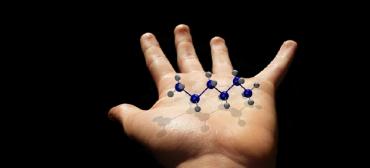Measles, Mumps, and Rubella (MMR)
What are measles, mumps, and rubella?
Measles, mumps, and rubella are serious diseases that are spread from person-to-person through the air.
-
Measles. Measles is caused by a virus that results in a rash, cough, runny nose, fever, and eye irritation, and can lead to ear infection, pneumonia, seizures, brain damage, and death.
-
Mumps. Mumps is caused by a virus that results in fever, headache, and swollen glands, and can lead to deafness, infection of the brain and spinal cord, painful swelling of the testicles or ovaries, and even death.
-
Rubella (German measles). Rubella (German measles) is caused by a virus that results in a rash, mild fever, and sometimes arthritis. It is spread from one child to another through direct contact with discharge from the nose and throat.
Infants and children who develop the disease usually only have a mild case of the rash and side effects. However, children who develop the disease in utero (from their mother while she is pregnant) can have severe birth defects and consequences. It is also very dangerous for pregnant women who are not immunized to come in contact with someone who has rubella, because it may cause a miscarriage.
Immunization against measles, mumps, and rubella
Measles, mumps, and rubella vaccines prevent these diseases. Most children who receive their shots will be protected during childhood. A combination vaccine is given to babies and children and provides protection against all three diseases. A new form of MMR vaccine has been developed, which also contains immunization against chickenpox (varicella). This type of combined vaccine is called MMRV.
When are MMR vaccines given?
MMR vaccines are given in two doses to babies and children at the following ages:
-
12 to 15 months
-
Four to six years
-
Seven to 18 years, if two doses were not previously given
Children who are sick or have a fever should wait until they are well to receive the MMR vaccine. Some children should not receive MMR vaccine. These include those who have ever had an allergic reaction to gelatin or to the antibiotic neomycin, and those who have had a previous serious reaction to MMR vaccine. Your child's doctor will advise you about vaccines in these and other situations.
Pregnant women, or women who plan to become pregnant within a month, should not receive the MMR vaccine.
What are the risks from MMR vaccines?
As with any medication, vaccines carry a small risk of serious harm, such as a severe allergic reaction or even death. Receiving a MMR vaccine is much safer than contracting any of the three diseases. Common reactions to these vaccines may include the following:
-
Fever
-
Mild rash
-
Swelling of glands in the cheek or neck
Severe reactions such as very high fever, seizures, or allergic reactions to these vaccines are rare. Other rare problems that may be related to MMR vaccines include deafness, long term seizures, coma, or permanent brain damage. However, experts are not sure whether these are caused by the MMR vaccines or not.
However, children with certain conditions that may affect the immune system (such as HIV/AIDS, cancer, or other immunodeficiency conditions), or those taking medications that may affect the immune system (steroids, and others) should not receive the vaccine without consulting your child's doctor.
How do I care for my child after immunization with MMR vaccines?
-
Give your child aspirin-free pain reliever, as directed by your child's doctor. Do not give aspirin.
-
Watch for signs of reaction such as high fever, behavior change, seizure, or difficulty breathing. Report these or any other unusual signs immediately to your child's doctor.
Related Questions
Boil on scalp
- 3561 Days ago
- Infections
Padar thamarai
- 3628 Days ago
- Infections
Sinusitis infection
- 3711 Days ago
- Infections
Cock pain
- 3792 Days ago
- Infections
I got infection to my appendix 2 months ago
- 4206 Days ago
- Infections
Suffering from burning sensatin
- 4042 Days ago
- Infections
advice about inside cover of my penis
- 4086 Days ago
- Infections





















